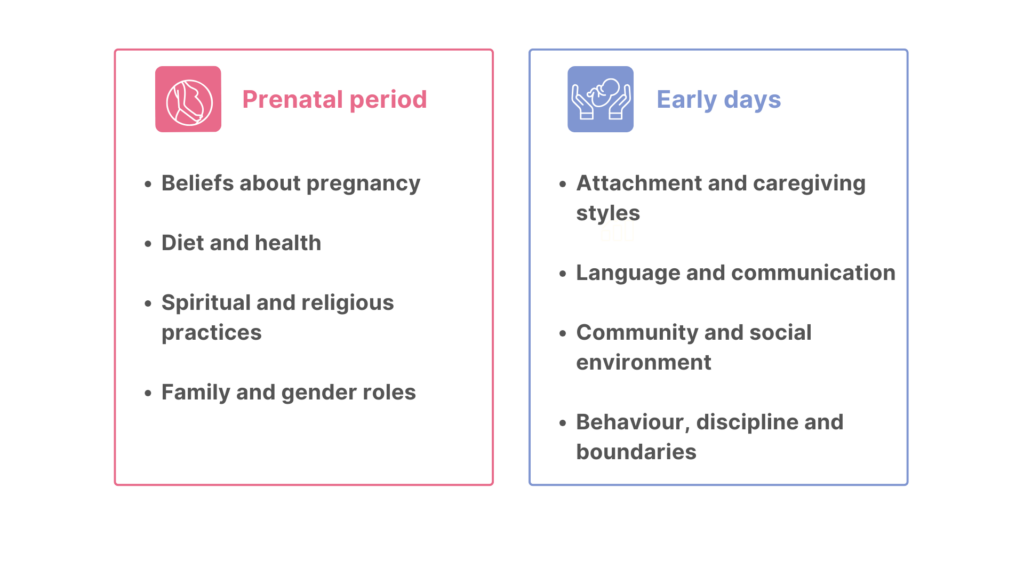Introduce
Culture influences development from the moment we’re born, making an impact on us as we grow.
Culture provides the blueprint for parenting practices, health decisions, emotional responses, and early learning. It shapes what is seen as “normal” or “healthy” in development and plays a huge part in how children come to understand themselves and their world. It is therefore essential that anyone working with children and families in these early days understands how cultural influences affect development. You will find some ideas below:

Develop
Health professionals supporting women and their partners throughout prenatal and postnatal care may hold personal beliefs or assumptions about culture. While all practitioners have the right to their own cultural or religious views, it is essential that these do not interfere with the respectful, inclusive, and equitable delivery of care. Professional practice must always prioritise the needs, values, and cultural backgrounds of the individuals and families being supported.
Watch the following video and consider how you might approach cultural humility in your role:
Reflect
Stop and Reflect: The following questions aim to help you embed cultural humility and awareness into your approach.
– What cultural values or practices might influence how this family experiences pregnancy, birth or early parenting?
– How might my own cultural background, beliefs or assumptions be shaping the way I interpret a family’s needs or behaviours? – Are you making space for families to share what’s important to them culturally, or are you assuming what they need?
Optional
Microaggressions are subtle, often unintentional comments or behaviours that can cause harm to people from marginalised groups. While they may seem minor in isolation, their cumulative impact can be deeply damaging, undermining confidence, sense of belonging, and mental wellbeing.
This guide is designed to help everyone—no matter what their role—to recognise what microaggressions are, understand their impact, and take practical steps to reduce harm in everyday interactions. By increasing awareness and encouraging accountability, we can all contribute to a more inclusive and respectful environment where everyone feels valued and heard.
Whether you’re just beginning to explore this topic or are looking to deepen your understanding, this guide offers insights, real-world examples, and practical advice to support learning and action.






